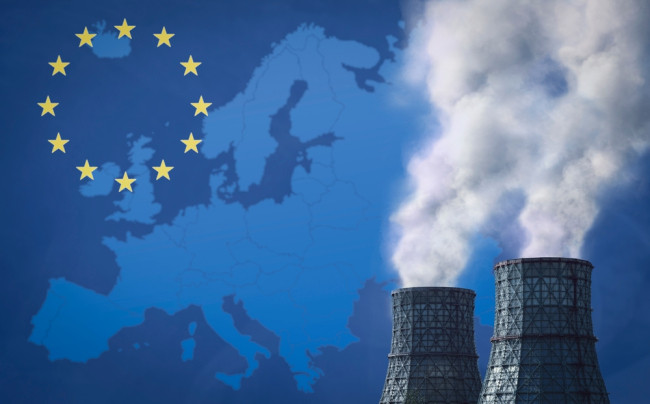Oil Markets Range-bound?

We have heard admonitions about peak oil and that we have already passed the geologic peak of world oil production capacity. On the other hand, the IEA warns that if we continue our present patterns of energy consumption, we will need the equivalent of four Saudi Arabia’s in new oil production capacity by 2030 - seemingly at ease that the oil is geologically out there.
Total’s CEO is more precise in suggesting that International Oil Companies have passed the peak in their access to conventional oil reserves. So what’s a guy supposed to think?
Oil prices have fallen, so there is supposedly no incentive to produce. Well, not really, because oil prices, albeit lower than their July 2008 peak of $147/bbl still averaged $62/bbl in 2009 and may struggle to average any less than that in 2010, even assuming bearish fundamentals prevail. There remains plenty of incentive to look for oil.
Just now, OPEC producers have a surplus production capacity of 5.4 mb/d - nearly twice Iran’s exports - and commercial inventories while off slightly are still at 59.1 days of forward consumption. So tightness in the oil market shouldn’t be a source of anxiety for 2010 and maybe a bit longer. This gives a breathing space to reflect on what might be next to stir up oil markets and prices. As in 2008 and early 2009, oil prices seem to be driven as much by exchange rate fluctuations as they are by prompt market fundamentals, but so far, price fluctuations are in a range that seems to fit most everyone. Saudi oil minister Ibrahim Ali al-Naimi remarked at the end of the recent OPEC session that prices just now are excellent. Producers and consumers have found convergence on an apparently satisfactory level of oil prices without even trying.
Security flare-ups can never be predicted, but for the moment Nigerian rebels in the Delta are still exchanging arms for cash - perhaps to buy better arms, but we’ll see. Iran continues to provoke the world with its apparent nuclear weapons intent, but there appears little appetite for muscular sanctions that could disrupt oil commerce.
Copenhagen surely does not bring much of a frisson to oil producers or other fossil fuel producers as the length of the de-carbonization path is now more apparent as the rhetoric of aggressive targetry fades.
The greatest uncertainty is probably the rate of economic recovery around the world. It is clearly going to be uneven, but the most probable scenario will lead to continuing modest decline in OECD oil consumption with whatever growth there is taking place outside OECD. Brazil, Russia, India and China alone have accounted for 60% of oil demand growth over the last decade. Most analysts put demand growth in 2010 at around 1.0 mb/d - no cause for concern. However, we suffered a demand shock in 2004 because we treated China like a black box. With only marginally greater transparency now, China could still surprise us again.
On the supply side we hear news stories of the major finds in Brazil’s deepwater pre-salt province. These kinds of discoveries should not happen very often, but against all the odds, they keep happening. New discoveries off the coast of Ghana, even a couple of billion barrels in Uganda - leave the impression the supply crunch is not here yet. In fact, the recent round of bidding on Iraqi fields suggest relatively easy incremental volumes of from 2.5 mb/d to 4.5 mb/d by 2016 - if companies are secure enough to work in Iraq. For those who remain convinced that the United States of America invaded Iraq to secure its oil resources for itself - your silence after the Iraqi announcements is deafening. Angola’s production aspirations, notwithstanding membership in a supply management club, will also provide more limited incremental volumes. Supply looks pretty good for the medium term. So another reason for relative calm?
Energy wallahs warn that deeper analysis reveals the same incipient supply crunch driven more by depletion than by growth, but timing may be later. Copenhagen was not what many hoped, but it may well have been the end of the beginning. Many things make 2010 capable of being the year the world gets serious and focused about the threat of climate change.
For those who are inclined to complacency in view of the fairly comforting nature of the short and medium term oil markets - these are the occasions of the most unpleasant surprise. Watch this space

Available in:
Regions and themes
Share
Related centers and programs
Discover our other research centers and programsFind out more
Discover all our analysesThe Strategic Dimension of Skills in the Clean Industrial Deal
In the competitiveness and energy transition battles, the European Union (EU) must master a determinant factor: skills.
The Energy Transition Faces Geopolitical Challenges. How Can Ideological Divides Be Overcome?
President Trump’s positions and policies, combined with record coal consumption and booming global electricity demand, geo-economic confrontation, and widespread concerns about energy security, are changing the game when it comes to understanding realistic decarbonization trajectories. The war in Europe is intensifying competition between defense and transition budgets. This is also the case elsewhere in the world.
The New US Energy Policy: Energy Dominance or Fallback?
Since taking office, President Trump has defined and started to implement a new energy strategy for the United States (US), aimed at supporting fossil fuels, the nuclear industry, and the critical minerals sector.
Reconnecting With Europe's Nuclear DNA: a Political Question
As Europe's main source of low-carbon electricity, nuclear power is a strategic asset for tackling climate and geopolitical challenges.














